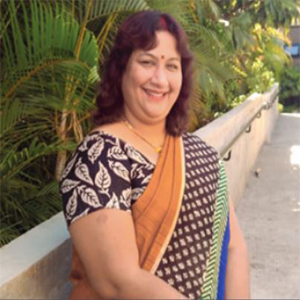Going Beyond The Classroom An Immersive Perspective
 During my more than a decade-long journey in education, the students I taught came from different backgrounds and some belonged to section/strata of the society of the surplus and the elite. 'Born with a silver spoon' would be an apt phrase to describe them. In their late teens, they have thus far leaded a cushioned life and rarely faced any kind of adversity and definitely no scarcity of any sort. They have never been exposed to the harsh realities of the society, so the main objective was to expose them to the mainstream and in turn sensitize them to the challenges faced by different sections of society. Sometimes, students have mental stereotypes based on their own backgrounds and past experiences. Experiential learning helped students to make an effort to rid themselves or at least temporarily let go of the stereotyping and look beyond to make a difference.
During my more than a decade-long journey in education, the students I taught came from different backgrounds and some belonged to section/strata of the society of the surplus and the elite. 'Born with a silver spoon' would be an apt phrase to describe them. In their late teens, they have thus far leaded a cushioned life and rarely faced any kind of adversity and definitely no scarcity of any sort. They have never been exposed to the harsh realities of the society, so the main objective was to expose them to the mainstream and in turn sensitize them to the challenges faced by different sections of society. Sometimes, students have mental stereotypes based on their own backgrounds and past experiences. Experiential learning helped students to make an effort to rid themselves or at least temporarily let go of the stereotyping and look beyond to make a difference.
Today, I urge you to embark with me on a wonderful journey to understand the students' perspective on the importance of experiential learning, which they have voluntarily narrated by sharing their firsthand experiences. The excerpt shared below, which is one such classic example of the challenges faced by these young adults going into the world to make a difference, helps us, social work educators realize the tremendous diversity that exists even in an individual's experiences in life as he interacts with so many other individuals from diverse backgrounds. The students are not only faced with an entirely different scenario geographically but also the subjects studied belong to diverse background culturally as well as economically. The students initially experience a cultural shock and then finally learn to empathize with the day to day challenges faced by the underprivileged sections of the society. It helps them to also focus on pressing issues in the country and the entire world which a student needs to understand for his/her holistic development and avoid any feelings of entitlement. Below is the experience of an Intern for Vishvanidam, Rajkot, India, who comes from a family background of well-established entrepreneurs in Rajkot and the above is her experience after completing her internship.
The internship at Vishwanidam, Rajkot taught me a number of things:
· Care and love: They taught me how to love and care unconditionally.
· Sharing: Be it knowledge, food or happiness, these children share everything with their well-wishers.
· Humility: Teaching these children taught me to be humble and simple.
· Responsibility and teaching: Teaching was the most challenging responsibility that had been placed on my shoulders at Vishawnidam.
· Enthusiasm: These children were bubbling with enthusiasm to study and learn English.
· Accepting life: Accepting life's failures and its challenges makes one strong and able.
· Guidance: Every child is special. They have their own abilities and talents.
· Organizational skills: Internships are meant to teach us organizational skills and tackle problems.
· Qualifications and Influence on my career, going beyond education! What I learned was that the kids knew a lot about what is happening currently in India but didn't have enough knowledge about the global statistics.
To summarize we can confidently say that the objective was achieved i.e. to provide a framework to the students to understand the importance of Social Work and NGO's in our society. The challenges faced by students due to their pre-mindset and their cultural backgrounds were overcome to a certain extent as there was a time constraint for the study. Students have taken lessons for life. In totality, the students have been able to see a change in themselves- a positive change.
Experiential Learning was able to make the students aware of their own inner potential of making a difference in people's lives. Exposure to ground/harsh realities of the country and the world to a certain extent given a new focus in life and a life-changing experience. Diverse groups and working for diversity has brought about in the student's life empathy for the challenged in the society.
Developmental Activities in higher education provide a framework to the students to understand the importance of Social Work and NGO's in our society. It provides the students an excellent opportunity to learn the importance, history, and benefits of Social Work Organization, the need for an NGO, different causes supported, the role of an NGO intern, funding, staffing and so on.
Deepali Mukherjee
Deepali Mukherjee is a B. A. (Psych.) & MSW (Medical & Psychiatric) who is passionate about making a social change with her work. At present she is a Director Training and Placement of Suryadatta Group of Institute which involves Identifying student potential, Grooming, Personality development of students, Soft skills training, EQ, Bridging training between academic and corporate work environment, Equipping students with basics for placement, Networking with national as well as International associations at Suryadatta Group Of Institutes.

